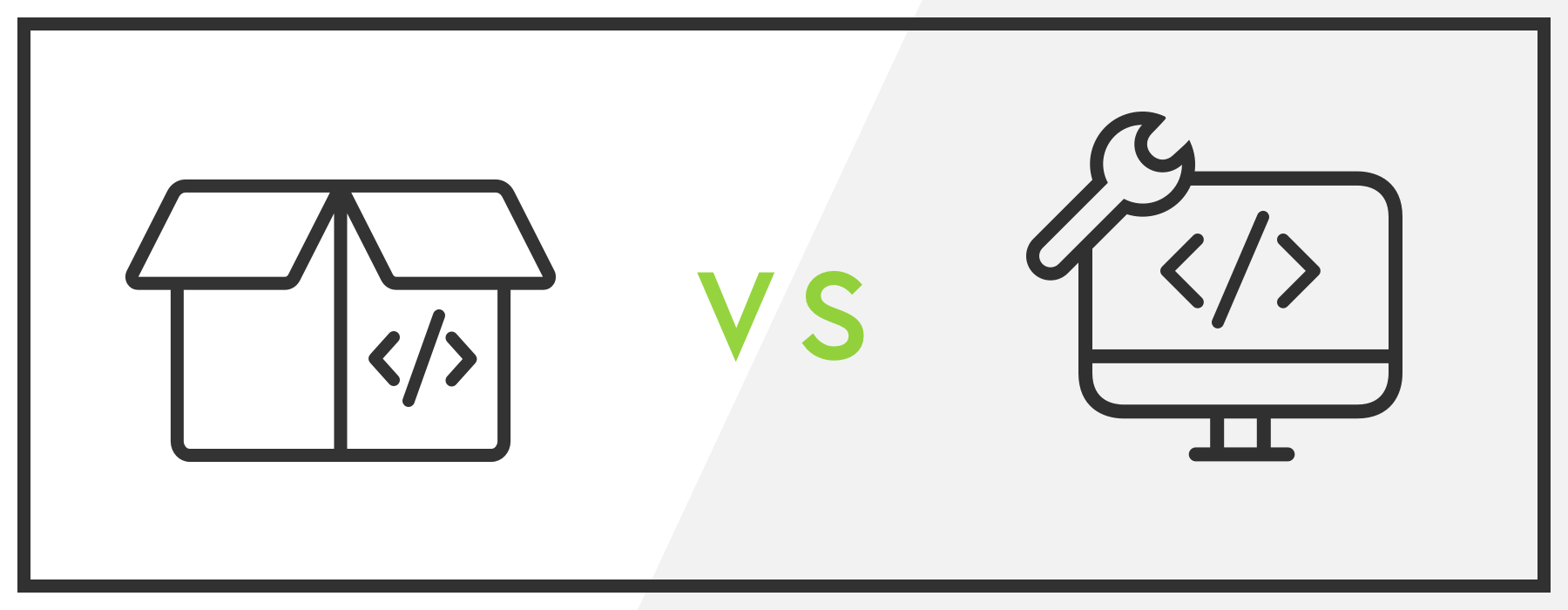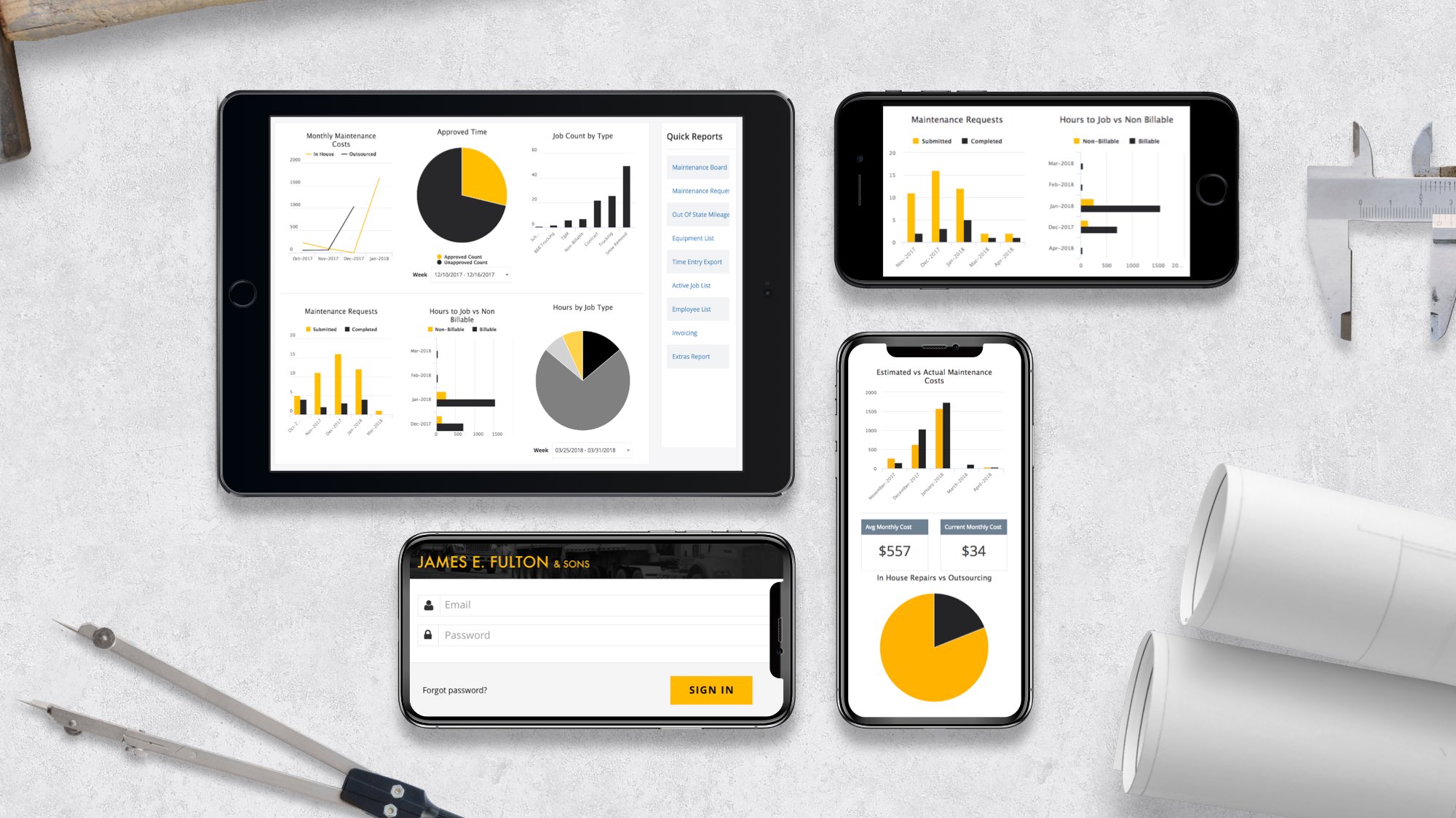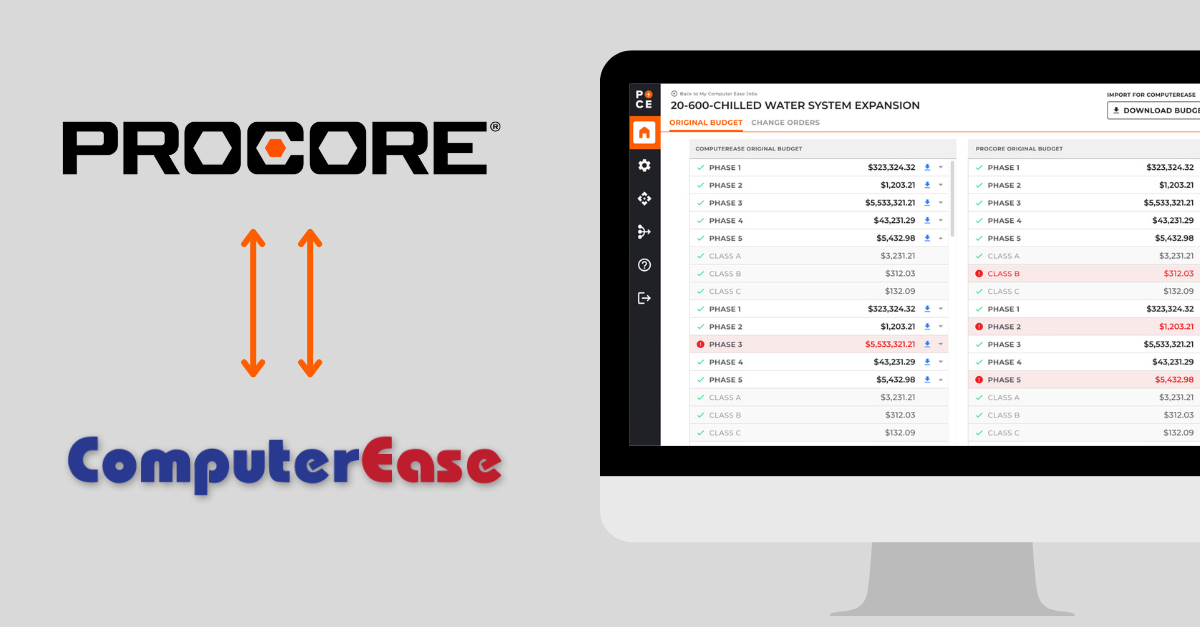There’s a lot of different things that keep business owners up at night. You might be struggling with challenges like these:
- Are we operating as efficiently as possible?
- Are we missing out on growth because of a customer experience that is “just OK”?
- How do we stop our employees wasting their time on internal tedious and low-level tasks?
- How do we eliminate our siloed data so we can make better decisions faster?
If you’re thinking, “There has to be a BETTER way!,” you’re right– software can help!

Off-the-Shelf vs Custom Software: Which Should You Choose?
When you start investigating software solutions, you’ll quickly realize that there’s two main options: (1) Buy off-the-shelf software or (2) build custom software.
Your first instinct might be to choose from one of the many off-the-shelf (or SaaS) solutions available. They can be easy to implement and you like the price tag, so what’s the harm?
But, most companies overlook the long-term benefits of investing in a custom software solution (even if you’re not an enterprise-size company). And when done right, the results are almost always worth it!
Read more about how to compare building custom software versus off-the-shelf software approaches.
Why Successful Businesses Build Custom Software
Custom software is built to fit the exact needs of your business. But, off-the-shelf software can force you to fit your business within its limitations. Remember that off-shelf software is built for the needs of the mass market. It needs to work for “most businesses” or “the average business.” So, a lot of companies realize within a few months or a year that they’ve already outgrown the capabilities of their solution, sending them back to the beginning to search for something new.
Don’t get us wrong. SaaS software has its place and benefits. There’s great platforms out there that work well for a number of specific business functions. But when it comes to your core competencies or your “secret sauce” of how you run your business, these solutions can leave you wanting more.
That’s why many businesses turn to custom software to build exactly what they envisioned. Using a custom solution for your operations can be a key differentiator. Project workflows, approvals, scheduling, work orders, employee management, and invoicing are just a few areas of the business that can make or break margins and customer success.
There’s no shortage of off-the-shelf software that attempts to address these pains. But patching together several tools that almost work often results in lack of adoption and little efficiency gain.
Real-word Example
James E. Fulton & Sons, one of Southwest Michigan’s most trusted construction and excavation companies, staff used to track over 1,000 pieces of paper every week. The staff had limited insight into equipment maintenance, managed six different timesheet formats, and manually generated weekly client updates. The inefficiencies of these processes cost the business too much energy and time.
They leveraged SPARK to build a custom web-enabled application, including a mobile employee app that automates all their back-end systems, including HR functions. The app also helps with job site management. It includes a single timesheet interface and automates all weekly updates. The application cut down the time needed to reconcile papers from days to just a few hours per week.
Fulton employees were excited to have a mobile app that they could use to reduce the time spent on repetitive processes. The combination of automated back-end processes and motivated employees helped both Fulton’s culture and its bottom line.

Advantages of Building Custom Software
As you consider custom software, here’s the main benefits you can leverage are:
1. Customization
Custom software is built for your exact needs, not just the “average” businesses. No two businesses are exactly the same and your processes are unique. It’s important to have the freedom and ability to build software that turns your complete vision into reality. In particular, custom software can enhance your proprietary processes in a way that no off-the-shelf software ever could.
2. Customer Experience
Most businesses compete directly on customer experience; it’s not always about the highest-quality product or lowest price. Customers choose companies that they trust to deliver the experience they’re looking for. Custom software can gives you complete control over how you interact with customers. You don’t have to settle for just “good enough.”
3. Scalability
Building custom software sets you up for long-term success. It’s not implement it once then forget about it. Once you build a tech foundation, you can continue to scale and enhance your solution(s) to meet the evolving needs of your business. You can seize on new opportunities quickly.
4. Return on Investment
Custom software projects come in all shapes and sizes, meaning they can meet your individual budget and timeline. Fortunately, at SPARK we see 90% of our clients recover their investment in 12 to 18 months. You can follow our ROI estimating tips to give you peace of mind that your investment will be worth it.
- Download ROI Estimating Calculator – Use this free calculator to estimate your actual return.
5. Work with a True Partner
Software projects can be overwhelming. Having a development partner you trust and lean on can be the difference between success and failure. They can help you to make the right technological decisions with confidence, since they have a deep understanding of the “why” of your project and business goals.
Read stories about successful business tools launched with SPARK →
How to Start a Custom Software Project
When undertaking your first custom software project, you might be tempted to try to change everything at once. But, this could lead to a messy and frustrating project, especially if it’s your first-time implementing new digital tools. And, going from a manual processes to an automated workflow is always considerable change.
Instead, start small. Identify the processes that will have the biggest impact on your business and prioritize them first. This will ensure a faster return on your investment and an easier adoption for your team.
Ask yourself these simple questions to uncover some quick wins for your business:
- What processes should we streamline?
- What important data could we be capturing with an easier workflow?
- What will motivate my team to use a new tool?
To be successful over the long run, it’s best to focus on incremental improvements.
Discuss Your Idea with SPARK
Choosing to build custom software is an exciting first step! And, you’re most likely making the right decision to serve your business for years to come.
At SPARK, we love to talk software and hear new ideas. Reach out to us to see how we can help transform your company!
Not ready to talk yet? No problem. Download our easy-to-use guide about building custom software.





